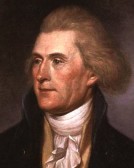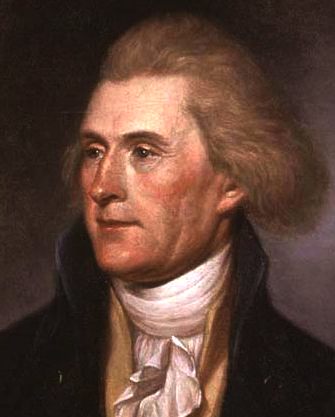 I just voted. And then arrived at the office to read Patrick’s provocative essay “Good Work.” He concludes with this:
I just voted. And then arrived at the office to read Patrick’s provocative essay “Good Work.” He concludes with this:
Contemporary conservatives and liberals are inheritors of a tradition that rejected this alternative as a way of liberating individuals from the obligations of having to pay attention. We are now exclusively holders of one job, and we rely either on the market or government to attend to the common good. The first liberation – market capitalism – has freed us in ways that have at once made us wealthy but also prone to rapacity. The second liberation – relying on government to regulate the market’s excesses – has allowed us to retain our lifestyle autonomy without the need to devote excessive personal attention to the remediation of injustices. In both cases, impersonal forces have replaced the second job that was once thought to be our true common work: widespread and personal investment in achieving the good of the community as a whole. This will be the political platform that is, and remains, missing from our current political arrangements. And, while tomorrow many of us will engage in what we believe to be our civic duty, instead we will be indicating our resignation from the same.
I take Patrick’s point, though I can’t say that I think an economic system unencumbered by central planning and control is much at fault. Further, I can’t go all the way with the “false choices” school of thought regarding American politics (which, it is true, has a long pedigree at least from Schlafly’s A Choice, Not an Echo). I take an Augustinian view of political power in the world articulated in this essay written to introduce an election forum prior to the 2004 presidential election:
History is replete with the tragic lesson that political power is inherently corrupting of principle, yet the truth of principles cannot get any traction in the world without being in and of it. A moral man may choose sectarian withdrawal, itself a kind of politics by other means, or the tragedy of engagement on the edge of risk and ever-compromised necessities. But it is the immaturity of double-mindedness to choose one and pine for the other, and such a divided mind produces only instability where order is required.
The double-mindedness which produces electoral withdrawal as a kind of fortification against compromised engagement in the rest of one’s life is a symptom of the troubling trend among Christians (or possibly Front Porchers? – cs) to cocoon themselves in the “misunderstood minority” identity and abdicate any responsibility for power while simultaneously refusing to give up what power they have. We have become exemplars of the tendency to develop a mind so principled that it succumbs to either ideologism or an idealistic paralysis that comes from seeing through all the false choices.
Institutional power is what it is—always. If a system passes through revolution to the establishment of a new regime, it will merely play its own variation on the same old problems. Or as Pete Townsend put it, “Meet the new boss, same as the old boss.” The best of our Christian political tradition teaches us, therefore, to align ourselves radically with the particular and the individual without actually believing that the institutional regime must be overthrown. One can thus work to mitigate and contain institutional power; living in love with the frail limits of existence—family, friends, community, and place—in service of truth, goodness, and beauty, yet knowing that even if good can be done, evil will be done too.
Patrick’s recognition of the limits of voting, however, is a spot-on observation that deserves real attention. He describes what Eric Voegelin pithily called the “swindle of consent” and what one of my agrarian heroes, Ralph Borsodi scoffed at as an “infinitesimal fraction.” Patrick’s call for the “common good” puts me in mind of my dream of restoring something resembling a Country Party, as described here:
Tocqueville was perhaps the first to understand and articulate clearly the bargain of democracy which traded the instability of the coarseness of the mob and the nobility and dignity of the aristocracy for a more uniform triviality of manners and pettiness of everyday life. Later critics of modern democracies from G.K. Chesterton and Aldous Huxley to T.S. Eliot and Russell Kirk have decried this exchange arguing, in essence, that such a bargain deprives men of the full range of what it means to be human, and thus of the resources to fashion a truly humane society. …
All of this raises the question most pressing on us now; a question that violates the PC codes of all the major political powers of our day: Are we free? For in fact, what Tocqueville was describing is what has been called by one eminent political philosopher the “swindle of consent.”
We live in the shadow of many masters—there are the tax masters, the monied masters, the loan officer and the payroll clerk; the town inspector, the county inspector, the state inspector, the code enforcer and the permit doler; there is the dog catcher and the license examiner and even the busy-body do-gooder from the heart and lung association who snubs out our cigarettes with one hand while paying her registered lobbyist with the other; there are the ad men and experts of all colors and stripes telling us what to buy, what to eat, what to read, and what to believe; there are the snooty professors and the imported school superintendents; the shipping barons, the oil barons, the corn barons, the food scientists, the Wal-Mart feeding trough, and the health care gods; the economic planners and the few who select our judicial masters. And once consent to these masters is given, opting out is rarely an easy (or legal) option.
Still, it has not always been so. American democracy, and Kansas in particular, has always been leavened by the Jeffersonian spirit of the small-hold freeman, the yeoman farmer, the independent small merchant, the frontiersman, the prairie populists, the lover of liberty who—with his sturdy virtues born of necessity and struggle and scarcity—became self-sufficient, caring and doing for himself, his family, and his community. This is also our heritage, yet it is in danger of becoming a museum set piece. …
Where does that leave us? With the difficult job of recovering the sturdy Jeffersonian virtues of the freeman—virtues of thrift, being rooted in one’s place, hard work, pride of ownership, the orderly use of time, fierce independence of spirit, self-sufficiency, charity towards one’s neighbor, a refusal to bend the knee to any master, membership in a communal identity, and a return to family economies that place a strong incentive on having children.
This is what has been called the Country Party. In the agrarian thinker Ralph Borsodi’s terms, membership in the Country Party represents a level of freedom and independence far greater than that created by “the infinitesimal fraction of political power represented by a vote.”
So yes, let’s all keep on with the “good work” that has been given to us to do. Voting, and so much more.










I think there is some confusion today with what is being swindled from us. If we turn ourselves over to our vices, even harnessing them as Adam Smith suggests is most beneficial to the human condition, we are merely debasing ourselves before a different tyrant.
I think you are correct that Kirk and others knew the precious nature of that which so many today value poorly and so easily release in exchange for a bowl of pottage.
What I fear is that even if you were to bring to clarity in the mind of the citizen what he has lost, he would still gladly lose it. Such is the power over our stomachs over our hearts and the sovereign rule of gluttony in civic virtue.
However, by including non-participation as participatory, you actually validate it. I’m not sure you want to do that. It’s true that you can construct an argument for why the virtues of non-participation are of lesser quality, but you’ve opened the door for an apposing thesis as well. It might have been better to leave non-participation as a non-entity.
Monastics, for example, would be difficult to challenge even in vitally different cultures. Their nearly universal case of virtue as non-participation is staggering, if taken seriously.
A country party would depend on a people attached to the country, no? This would mean a substantial number of people who actually own a part of the country and, in the cities, people who realize that their daily bread depends on people who own a part of the surrounding countryside. That is to say, it requires Belloc, it requires Chesterton, it require Leo, it requires Christianity.
No fault then with American corporations aligning themselves with the central planning of communist China and Vietnam! Must be happening on another planet !
Not that I don’t understand what you are saying Medaille but about the time something “requires Christianity”, it shall be a corrupted form of it that shall be the designated requirement.
There is something within it, a kind of voluptuous yet abidingly simple beauty that actually makes it anathema to the tawdry aims of the political connivance practiced by the nation state.
To think that anyone operating within the circles of hell emanating from the cloaca draining the Federal district can function with intact “Christian values” is to give far too much leeway to such a notion that we might, in this country still, operate with said values in the forefront. The place is an elaborate carnival now, swamped in cant, narcissism and greed. It is an elaborate opera whose backers run a bunko and counterfeit operation . About the time a reckoning might become unavoidable, we shall all be enjoying the penultimate scene where the tragic Hero sings a soaring aria entitled “How Come Nobody Told Us?” . Needless to say, by the next morning, the backers will be long gone, strewing their retreat with all manner of distractions which we have become altogether habituated to.
But of course, I have a bad attitude.
Comments are closed.